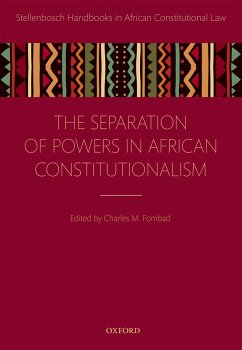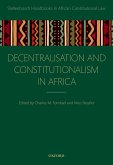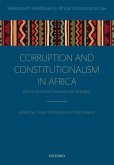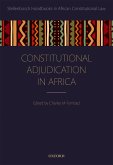The new series Stellenbosch Handbooks in African Constitutional Law will engage with contemporary issues of constitutionalism in Africa, filling a notable gap in African comparative constitutional law. Separation of Powers in African Constitutionalism is the first in the series, examining one of the critical measures introduced by African constitutional designers in their attempts to entrench an ethos of constitutionalism on the continent. Taking a critical look at the different ways in which attempts have been made to separate the different branches of government, the Handbook examines the impact this is having on transparent and accountable governance. Beginning with an overview of constitutionalism in Africa and the different influences on modern African constitutional developments, it looks at the relationship between the legislature and the executive as well as the relationship between the judiciary and the political branches. Despite differences in approaches between the different constitutional cultures that have influenced developments in Africa, there remain common problems. One of these problems is the constant friction in the relationship between the three branches and the resurgent threats of authoritarianism which clearly suggest that there remain serious problems in both constitutional design and implementation. The book also studies the increasing role being played by independent constitutional institutions and how they complement the checks and balances associated with the traditional three branches of government.
Dieser Download kann aus rechtlichen Gründen nur mit Rechnungsadresse in A, B, BG, CY, CZ, D, DK, EW, E, FIN, F, GR, HR, H, IRL, I, LT, L, LR, M, NL, PL, P, R, S, SLO, SK ausgeliefert werden.









